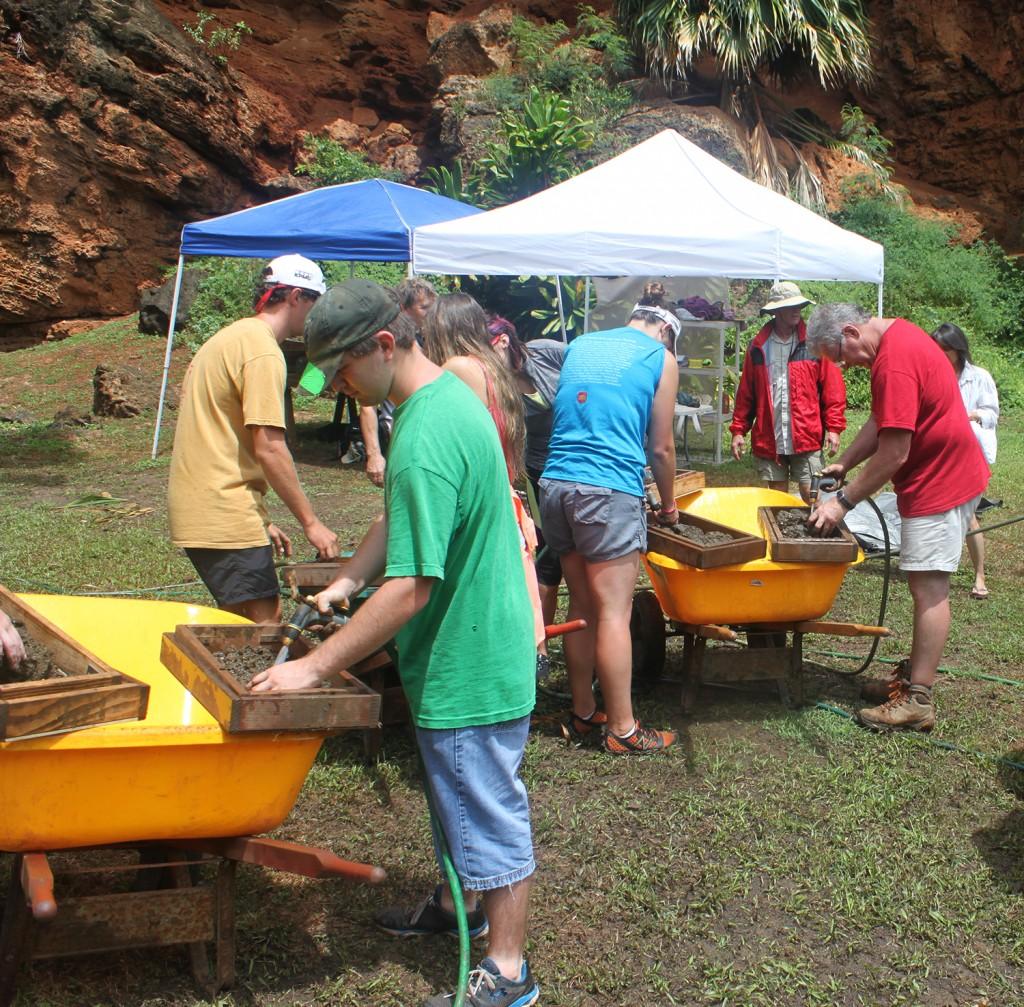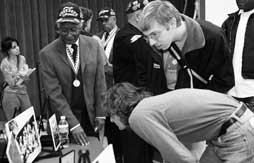By Julissa Treviño/south news editor
The attempt to find a way to recycle around campus became the center of complications and disappointment after several TCC faculty members came to disagreements during a South Campus meeting Feb. 15.
Sponsored by student activities, students and faculty gathered at the informal meeting to look for possible ways to set up student-run recycling and raise funds for student activities, but problems occurred when figuring out the details of management and funding.
Michael Tankersley, NE Campus plant superintendent, and Bill Westphal, assistant director of campus services, have already been working on districtwide recycling projects and attended the meeting.
Both John Haglund, South Campus instructor of geology, and Dr. Lori Fowler, sociology professor on NE Campus, have attempted student-run recycling projects on their campuses for the service learning program in which they’re involved, with a theme of environmental sustainability.
However, Tankersley’s projects of recycling paper, plastic and aluminum, which are currently underway, eliminate the idea of student involvement.
Tankersley suggested students be in charge only of raising awareness through campus, something Haglund, an advocate of student involvement, was disappointed about.
“Something like student-run recycling should not be so difficult,” he said.
Haglund had hoped to gather volunteers/students who would physically take the recyclables to centers.
“ To say that students can’t have a say or input in the process is a disappointment,” he said.
Bob Nabors, South Campus instructor of biology, said though he was pleased that recycling plans are being made, he was let down that “the people in charge are not letting students get involved.”
Tankersley said that trying to make students manage the program would entail too many “logistical problems,” and said working with a big company like Allied Waste Services is a better idea.
“The student body would be most useful educating than managing,” he said.
Steven Emenhiser, member of Student World Assembly and South Campus environmental geology major, said he was disillusioned by the outcome of the meeting.
A dispute also arose over where to start when it comes to recycling projects. South Campus faculty and students expected to start on a small scale.
Districtwide programs are better than small projects because students who go to more than one campus will be educated on the same program, Tankersley said.
However, Dr. Tahita Fulkerson, associate vice chancellor for teaching and learning services, and coordinator of the service learning projects, said that aside from concerns of allowing students to be involved in projects, “most projects that are successful start at a small scale and later grow into district policies.”
As for recycling projects currently underway, Tankersley said his project began when he started recycling paper at NE Campus about a year ago and progressed to districtwide recycling four or five months ago.
All campuses already have recycling bins for paper and cardboards in most offices, but a complete and unified recycling program is only beginning.
District implementation should fully take place in the next two-three months, as TCC is very close to becoming LEED certified, Tankersley said.
LEED (the Leadership in Energy and Environmental Design) is the nationally accepted benchmark for the design, construction and operation of high performance green buildings.
“We already are working on some projects, but Mike and Bill Westphal are probably about 45 to 60 days away from providing me with proposals for the next round of recycling programs that we will consider for the College District,” David Wells, vice chancellor for operations and planning services, said.
“The typical kinds of decisions I will be called on to make will be with regard to the use of College resources to support such efforts,” he said.
Before starting on a large-scale project, however, a lot of research has to go into the project.
“There really are a variety of inquiries that must be made before programs are initiated—it’s just not as simple as putting up a container and collecting plastic bottles or aluminum cans or paper products,” Wells said.
Though there is still dispute over how much student involvement will be a part of recycling at TCCD, the best advice Wells gives to students is “when you find the opportunity available to participate in such a program at school, do everything you can to participate.”
Meanwhile, Fowler and Tankersley are initiating a recycling campaign on NE Campus sponsored by NE maintenance, Fowler’s classes and NE Student Ambassadors, with Haglund overseeing a similar campaign on South Campus.
Students and ambassadors are now helping implement paper recycling in every office and classroom.
NE Student Ambassadors are also holding a campus clean-up day April 5. They will collect garbage and trash throughout campus.
Right now, two of the biggest obstacles in the way of the districtwide project, Tankersley said, are funding containers for recycling because they are very expensive and setting up the project simultaneously in all TCC buildings, including the downtown offices.
“Over the next few months, you will begin seeing more and more of an effort at TCCD to establish recycling efforts, and opportunities for participation will be available,” Wells said.






















